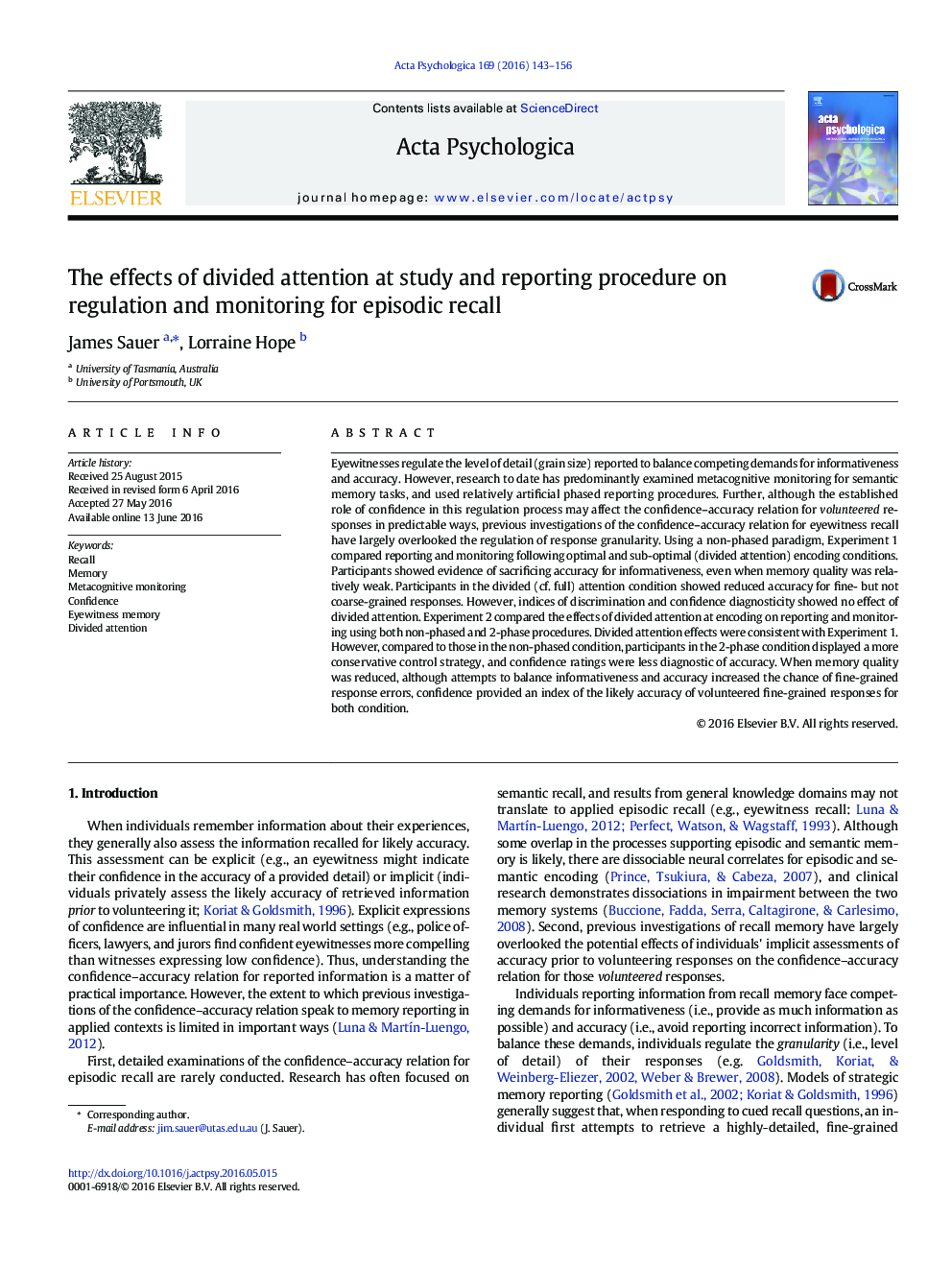| Article ID | Journal | Published Year | Pages | File Type |
|---|---|---|---|---|
| 919631 | Acta Psychologica | 2016 | 14 Pages |
•We tested grain size regulation using phased and non-phased reporting procedures.•Participants sacrificed accuracy for informativeness, even when memory was weak.•Confidence indexed accuracy for volunteered fine- but not coarse-grained responses.•Reporting procedure affected grain size regulation and the CA relation.
Eyewitnesses regulate the level of detail (grain size) reported to balance competing demands for informativeness and accuracy. However, research to date has predominantly examined metacognitive monitoring for semantic memory tasks, and used relatively artificial phased reporting procedures. Further, although the established role of confidence in this regulation process may affect the confidence–accuracy relation for volunteered responses in predictable ways, previous investigations of the confidence–accuracy relation for eyewitness recall have largely overlooked the regulation of response granularity. Using a non-phased paradigm, Experiment 1 compared reporting and monitoring following optimal and sub-optimal (divided attention) encoding conditions. Participants showed evidence of sacrificing accuracy for informativeness, even when memory quality was relatively weak. Participants in the divided (cf. full) attention condition showed reduced accuracy for fine- but not coarse-grained responses. However, indices of discrimination and confidence diagnosticity showed no effect of divided attention. Experiment 2 compared the effects of divided attention at encoding on reporting and monitoring using both non-phased and 2-phase procedures. Divided attention effects were consistent with Experiment 1. However, compared to those in the non-phased condition, participants in the 2-phase condition displayed a more conservative control strategy, and confidence ratings were less diagnostic of accuracy. When memory quality was reduced, although attempts to balance informativeness and accuracy increased the chance of fine-grained response errors, confidence provided an index of the likely accuracy of volunteered fine-grained responses for both condition.
